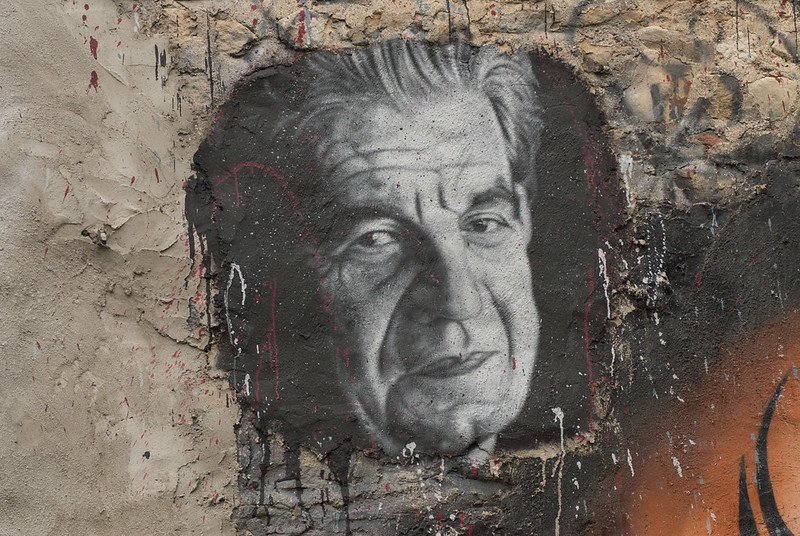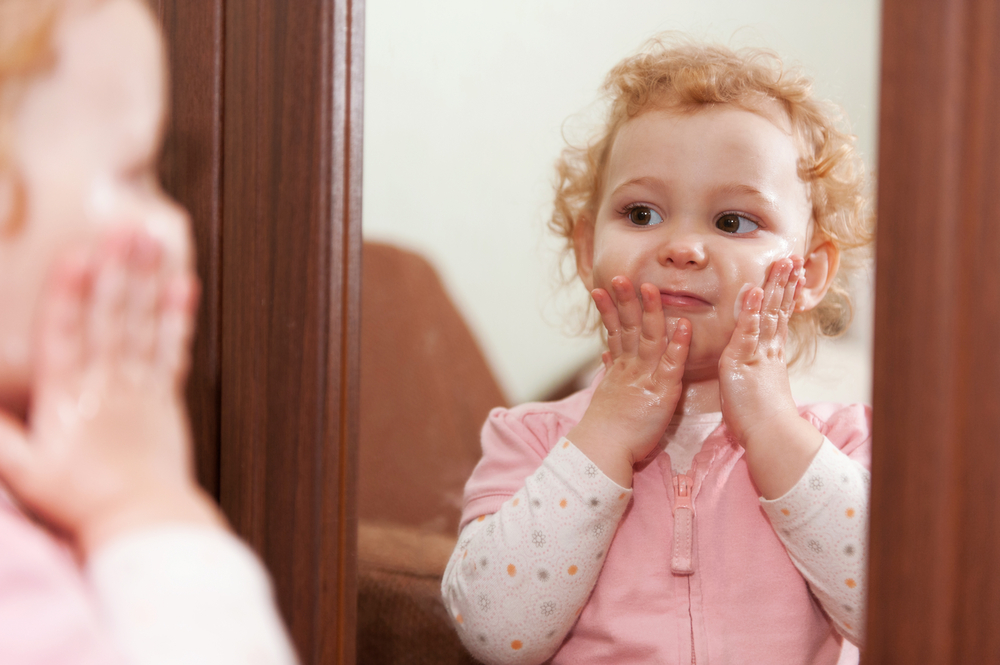Table of Contents (click to expand)
Jacques Lacan described the mirror stage with a baby looking at itself for the first time and forming its individuality and ego.
Have you ever watched a baby look at its reflection in the mirror? If you’re lucky enough to witness such an event the very first time it takes place, you will notice something very interesting that happens.
The baby, after seeing its own reflection, appears startled for a short while and is then highly amused by whatever it can see in the mirror.
This may seem like a small, cute incident, but over the years, psychoanalysts have been scratching their heads and debating over what moments like these represent in the development of a person.
So, what does this small moment mean? Is it quite simple—a child watching itself for the first time and registering it—or is it a crucial moment in the development of a person?
Jacques Lacan
Jacques Lacan was a French psychoanalyst considered to be the original interpreter of Freud. His works and insights have influenced both 20th century and modern psychology to a great extent. Lacan’s father was a wealthy businessman and his mother was a pious, Catholic woman.

Lacanian Mirror Stage Theory
Early on, he gave up believing in God and became obsessed with philosophy, math and medicine. He studied medicine, where he specialized in psychiatry. Lacan called his take on the child watching its reflection as “The Mirror Stage”.
Lacan is probably best known for his mirror stage theory, as he formulated and revised the theory over the course of thirty years.
Let’s try to understand the mirror stage in two phases:
- The Ideal ‘I’ Phase
- The socio-linguistic phase
The ‘Ideal I’ Phase
Lacan interprets Freud and adds to his theory of Hilflosigkeit, or helplessness. Lacan states that when a baby is born, the different, new surroundings everywhere create a lot of negative feelings in the baby. The frequent anxiety, fear and confusion lead the baby into a stage of perpetual helplessness. What finally helps the baby is that moment when it first looks at its own reflection.

Lacan states that this stage, the initial 6-18 months of a baby’s life is the time where it does not have any individuality. It is growing up in an environment of helplessness—granted, with people around it—but it does not ‘identify’ as a particular person.
When the baby looks at itself for the first time in the mirror, all those feelings are given a physical form—the shape of a body. In that moment when the baby is startled, it finally identifies as a person, and its ‘ego‘ is born.
Lacan states that this identification also creates a ‘gestalt’ or lifelong pattern in which the person is almost never truly satisfied with what they see in the mirror.
According to Lacan, when a baby feels helplessness to such an extent, the first time it sees its own reflection and a physical shape is given to all those feelings, a lifelong pattern is formed. The formation of ego creates the “Ideal I”, which is how the baby feels/thinks on the inside. As the baby grows up, it keeps comparing the ‘ideal’ version of itself to what it sees in the mirror.
The Socio-Linguistic Phase
As the baby grows up, it can now command language, and can take in multiple things from family or the surrounding society. Lacan states that in this stage, the role of people close to the child/family, plays an important part in the furthering of the ideal I.

We’ve all heard compliments given to children as they grow, “Oh you look so good”, “You look just like your mother/father”, “You look so tall and strong” etc. Lacan states that remarks like these are what help in developing the Ideal I of the child. After listening to such compliments, the child will think, “Yes, that is what I should be like”.
If the child is not able to achieve what they ‘should’ be like, it creates dissatisfaction with their physical self. It is during the development of the Ideal I in this stage wherein the child also takes to the idea of role models.
The child, according to its own Ideal I, creates the pictures/people in its head towards which it wants to strive. This is the part of the theory that Lacan revisited in the 1960s, where he stressed the role of family, showing how important it is in the development of the child and its individuality.
Also Read: Can Animals Recognize Themselves In The Mirror?
Conclusion
Psychoanalysts have been keenly observing the role of childhood in personal development for a long time now. Things that would appear to be ‘regular’ activities have a significant impact on the psyche of a person, and on how it develops.
Concepts like the “Ideal I” are a stark reminder of how children pick up the smallest things in their subconscious, which then go on to shape their minds throughout their lives. It is crucial to recognize such factors not only as a parent, but also as a human being, because they greatly assist with the process of self-introspection.
Obviously, none of us can fully trace back each of our actions and emotions to where we picked them up, but concepts like the Ideal I help to paint a larger picture, under which we as individuals can try to fully understand ourselves.
Also Read: Can We Use Psychodynamic Theories Even Today?
How well do you understand the article above!

References (click to expand)
- (2013) Jacques Lacan - Stanford Encyclopedia of Philosophy. The Stanford Encyclopedia of Philosophy
- Introduction to Jacques Lacan, Module on Psychosexual .... Purdue University
- Definition: Mirror Stage. Purdue University
- Lacan Mirror Stage - Penn Arts & Sciences. The University of Pennsylvania School of Arts and Sciences
- Gallop, J. (1983). Lacan's "Mirror Stage": Where to Begin. SubStance. Project Muse.
